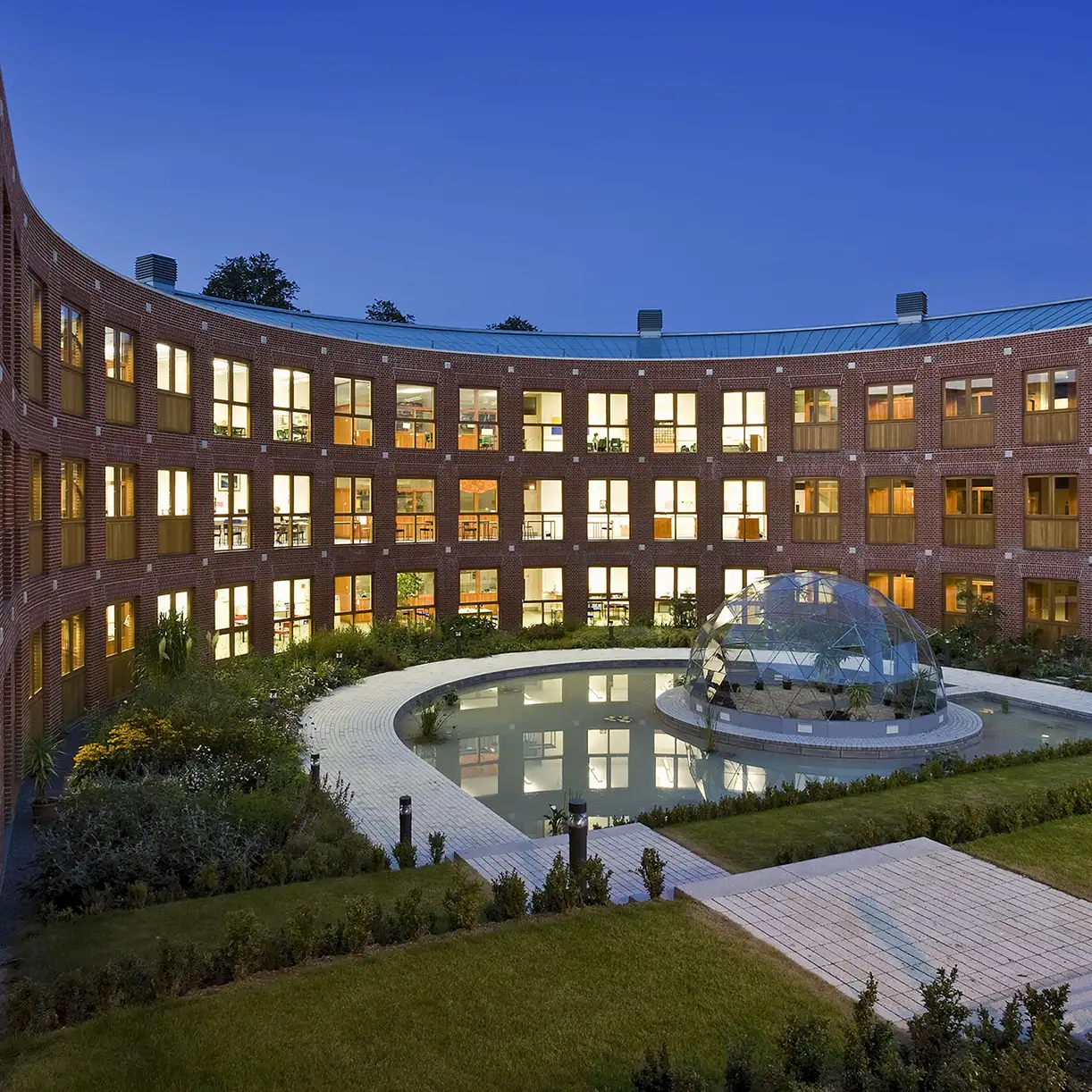
Exploring Physics beyond the classroom
Our Physics pupils visit institutions like Oxford University’s materials and Physics departments, exploring cutting-edge research and facilities, and the Diamond Light facility at the Rutherford Appleton Laboratory to complete a particle Physics masterclass.
They explore the concepts of motion through an exciting trip to Thorpe Park.
These experiences deepen their understanding and bring the curriculum to life.
Physics curriculum
Excellent facilities and results
The Physics department, located in the Sanger Centre, is a dedicated space featuring state-of-the-art facilities that create an exceptional learning environment for pupils to excel in their Physics studies.
Our pupils push the boundaries of their project work and we are consistently proud of what they achieve, both here and beyond in the fields of art, design, architecture and engineering.
Our Physics assignment room has teaching staff on duty to provide support. We also have a well stocked library and Sixth Form research lab.
The well-equipped laboratories offer ample space for conducting experiments and hands-on exploration. Our commitment to providing modern technology and cutting-edge equipment enhances the learning experience.
Together with our excellent purpose-built facilities and consistently high exam results, we facilitate pupils to go on to study Physics and Engineering at esteemed intuitions of higher education.
-
Year 9
Following the AQA GCSE syllabus, we cover topics such as forces, energy, electricity and magnetism.
-
Years 10 & 11
Currently studying Edexcel iGCSE, our topics include:
- Forces and motion
- Energy
- Radioactivity and nuclear physics
- Waves
- Astrophysics
- Magnetism
- Electricity
- Properties of matter
-
Sixth Form
AQA A Level – studying a range of topics in greater depth from mechanics and motion, to circuits and waves, and extending beyond familiar GCSE topics to particle physics and quantum mechanics to better understand the nature of the universe. The course then dives into the realms of fields and nuclear physics and finishes with an exploration of turning points in Physics.
For pupils studying A-level Physics without maths there are supplementary maths lessons to up-skill their maths to the required level.
IB higher and standard level pupils study alongside each other, giving standard level pupils the option to sit in on HL lessons to further their knowledge on other areas of Physics or direct their time to consolidate their learning on SL material.
The content covered by all IB Physics pupils include space time and motion, the particulate nature of matter, waves behaviour and fields, nuclear and quantum. Within each of these topics there are core aspects common to both standard and higher levels, and more mathematical and in depth aspects applicable to higher level only.
“It’s not like GCSE, you have to think a bit harder!”
“The particle Physics topic was really interesting because it was all new stuff.”
“There’s a lot of algebra in Physics, sometimes you need to use more than one equation to get to the final answer.”
“The balance of eight periods of lessons and eight periods of assignment time helps with learning to answer A Level style questions and solve problems.”
“I’m better at maths because I had to use it in topics that I understood in Physics”
“You have to link several ideas together to understand what’s going on.”
“We have to consider applications of Physics, their benefits and risks, ethical issues, and how society use science to make decisions.”

Beyond Bryanston
After studying Physics, pupils have many educational and career paths to explore. Many pupils pursue higher education in Engineering and Physics or related fields such as Astrophysics or Applied Mathematics. This can lead to careers in the engineering industry, research and development, medical physics or telecommunications.
Some pupils go into multidisciplinary areas like computational physics or data science. Physics also provides a strong foundation for finance, consulting, or technology careers, where analytical and problem-solving skills are highly valued.
Physics
Meet our staff
All teachers in the department are subject specialists with a background in Physics or engineering. There are a number of different specialisms ranging from aerodynamics and hydraulic engineering to lasers, optics and particle physics.
Teachers work collaboratively with pupils to ensure they can access the support they require in our bespoke assignment space and during the many Physics clinics that run weekly.
Our teachers are supported by highly qualified technicians with backgrounds in teaching and support a number of individual research projects each year.

